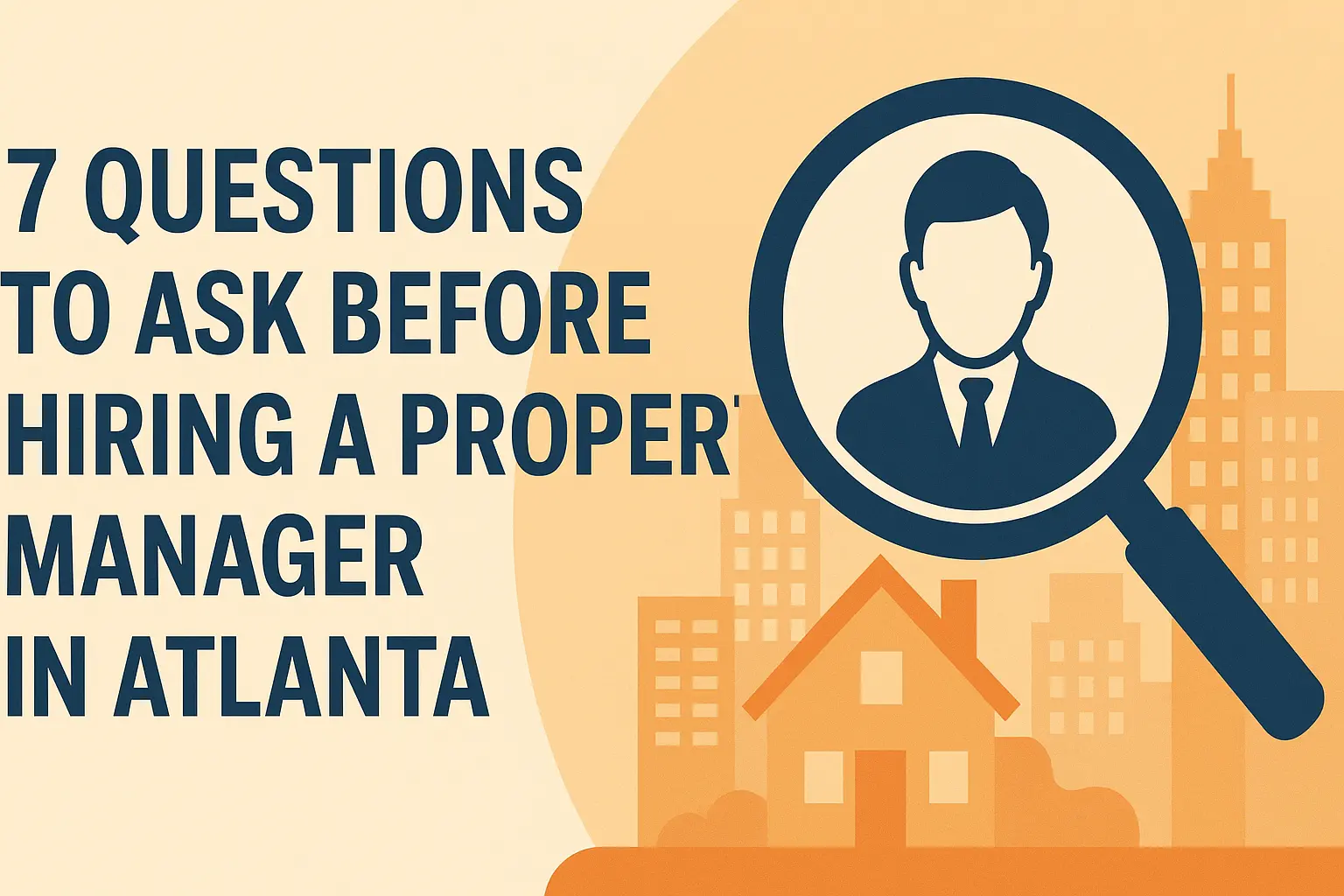As a property owner or investor, you want to ensure your investment is profitable and stress-free. This is where a property manager comes into play.
A skilled property manager in Atlanta can transform your property ownership experience. They can handle the intricacies of local laws, tenant satisfaction, and profitability.
But how do you choose the right one? What questions should you ask before entrusting them with your property?
This article will guide you through the top 7 questions to ask before hiring a property manager in Atlanta. It aims to help you make an informed decision that will lead to a successful property investment experience.
So, let's dive in and explore these critical questions.
Understanding the Atlanta Property Management Landscape
The Atlanta property management scene has its unique challenges and opportunities. It requires a deep understanding of local market trends and regulations.
Each neighborhood in Atlanta has its distinct characteristics. Property managers need to adapt strategies to ensure tenant satisfaction and maintain high property values. Familiarity with these intricacies is crucial for success. An experienced property manager can leverage this knowledge to maximize your investment's potential. This leads to improved profitability and peace of mind for property owners.
1. What is Your Experience and Track Record in Atlanta Real Estate?
Experience in Atlanta's real estate market is a key factor when selecting a property manager. An established track record indicates they know how to navigate market fluctuations. Past successes provide insights into their management capabilities.
Inquire about their history with properties similar to yours. Understanding how they have managed these situations will give you confidence in their ability to handle your property. This reflects their adaptability and problem-solving skills.
Ask for references or testimonials from previous clients. A reliable property manager should be able to provide these. It's a great way to gain an outsider's perspective on their services. This can further solidify your trust and ensure your property is in the right hands.
2. How Do You Determine and Optimize Rental Prices?
A property manager's ability to set the right rental price is crucial. It impacts your profitability and tenant turnover rates. Ask how they conduct market analysis and competitive pricing reviews.
An experienced property manager in Atlanta should leverage local market trends. They should adjust prices based on demand, location, and property features. This ensures your rental is competitively priced yet profitable.
Additionally, inquire about strategies they employ to optimize rent over time. Continuous assessment and adjustment can maximize your rental income. A proactive approach to pricing can help maintain occupancy and satisfaction. This reflects a manager's commitment to sustaining your property's financial health.
3. Can You Describe Your Tenant Screening and Retention Strategies?
Tenant screening is a vital part of property management. Effective screening ensures you select responsible tenants. Ask how they verify background, credit, and rental history.
Understanding retention strategies is equally crucial. Happy tenants are more likely to renew leases. Inquire about communication tactics and responsive service to keep tenants satisfied.
Moreover, ask about initiatives to foster positive tenant relationships. This could include personalized communication or recognizing tenant milestones. A property manager's approach to retention reflects their commitment to maintaining stable occupancy. Their strategies should align with your goals for long-term profitability and hassle-free management.
4. What Are Your Property Maintenance and Emergency Handling Protocols?
Property maintenance is key to preserving your investment. You should know how a property manager plans to handle routine and unexpected repairs. Their ability to swiftly address issues can prevent minor problems from escalating into costly repairs.
Emergency protocols are equally vital. A property manager should detail their 24/7 availability for urgent situations. This ensures tenant safety and protects your property from significant damage.
Moreover, inquire about the network of contractors they utilize. Trusted, cost-effective professionals can make a difference in service quality. A property manager with strong vendor relationships can ensure prompt and reliable maintenance. Understanding these procedures will provide peace of mind that your property remains in prime condition, safeguarding your investment and your tenants' well-being.
5. How Transparent is Your Fee Structure?
Understanding a property manager's fee structure is crucial. Look for transparency in fees to avoid hidden costs. A clear explanation helps you assess whether the services align with your budget.
Different property managers may charge differently. These could be flat rates or a percentage of the rental income. Clarify what each fee covers to avoid unexpected charges later.
Also, inquire about additional costs. Are there extra fees for marketing vacancies or special services? Ensure all potential expenses are discussed upfront. By knowing the full cost, you can make an informed decision, balancing cost with the quality of service. Transparency in fee structures builds trust, a key component of a successful property management partnership.
6. What Methods Do You Use for Communication and Reporting?
Effective communication is vital in property management. A property manager should keep you informed about your property's status. Regular updates can prevent misunderstandings and foster a trusting relationship.
Ask about the preferred communication channels. Some managers favor emails, while others might use phone calls or management software. Choose a manager whose communication methods align with your preferences.
Reporting is equally important. Reports should provide insights into your property's financial performance and operational status. Detailed financial statements, maintenance reports, and tenant updates are essential. These reports should be timely and comprehensible, ensuring you stay on top of your investment performance. Understanding their communication and reporting methods can make managing your property more streamlined and less stressful.
7. Are You Licensed and Insured, and How Do You Stay Compliant with Local Laws?
Hiring a licensed and insured property manager is crucial. Licenses signify professionalism and adherence to industry standards. In Atlanta, property managers must hold a real estate license to handle property transactions.
Insurance offers protection against potential liabilities. It’s essential for covering damage or unforeseen issues. Ask about their insurance coverage to ensure your interests are safeguarded.
Compliance with local laws is non-negotiable. Laws and regulations can be complex and change frequently. A competent property manager stays updated with these changes, ensuring your property always meets legal standards. Inquire about their process for staying informed and compliant. This diligence helps avoid legal troubles and keeps your property management experience smooth and stress-free.
Making the Right Choice for Your Atlanta Property Management Needs
Choosing the right property manager can transform your investment into a rewarding endeavor. Be thorough in your evaluation process to ensure peace of mind and profitability.


